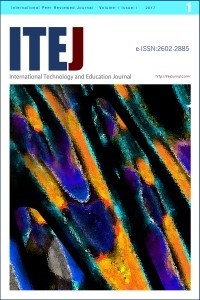Google Scholar Through the Eyes of Academics
Google Scholar Through the Eyes of Academics
Known and used extensively worldwide, Google Scholar is an search engine offered by Google that specifically enables academics and students alike to conduct academic and scientific research. In this sense, it is important that we investigate how researchers and academics view Google Scholar, as well as look not only how they use it and the issues that they face when using it, but also obtain their feedback in terms of how it could better be improved. Hence, this study aims to evaluate Google Scholar through the lens of their viewpoints. In order to reach our objective, we examined and disclosed how academics viewed Google Scholar in general, how they used it, both the benefits that they felt they had received from, alongside the kinds of issues that faced while using it. We also had asked the participants for feedback as to how Google Scholar could better be improved upon. Our research was qualitative in nature due to the fact that it set out to assess people's personal opinions. We likewise used criterion sampling in order to establish our sample population. Hence, those interviewed included 15 academics employed at a Turkish university between 2018 and 2019 during its spring semester. First, we used semi-structured interviewing to collect the target data. We then examined that data using descriptive analysis. Finally, we then presented our findings in accordance with the objectives outlined in study.
___
- Ay, K., Seferoğlu, S. S., (2017). Lisansüstü öğrencilerin çevrim-içi bilgi arama stratejilerinin çeşitli değişkenler açısından incelenmesi. Kastamonu Eğitim Dergisi, 25(1), 51-66. Aktay, S. (2017). İnternet el kitabı. Ankara: Eğiten Kitap. Çetin, İ. Ve Şendurur, E. (2016). Çevrimiçi akademik kaynakların kullanılabilirlik değerlendirmesi. Mehmet Akif Ersoy Üniversitesi Eğitim Fakültesi Dergisi, 40, 273-299. Dinçer, S. (2018). Akademik yazım ve araştırmacılara öneriler. Ankara: Pegem Akademi Google Akademik nedir, nasıl araştırma yapılır? (2018, 16 Ekim). Erişim adresi: https://www.cnnturk.com/bilim-teknoloji/teknoloji/google-akademik-nedir-nasil-arastirma-yapilir Google Scholar (2019). Erişim adresi: https://scholar.google.com/intl/en/scholar/about.html Harzing, A. M. (2017, Şubat 28). Google Scholar is a serious alternative to Web of Science. Retrieved from: https://harzing.com/blog/2017/02/google-scholar-is-a-serious-alternative-to-web-of-science Jacsó, P. (2005). Google Scholar: the pros and the cons. Online information review, 29(2), 208-214. Jacsó, P. (2006). Deflated, inflated and phantom citaiton counts. Online information review, 30(3), 297-309. DOI 10.1108/14684520610675816 Köroğlu, S. A., (2015). Literatür taraması üzerine notlar ve bir tarama tekniği. GiDB Dergi, 1, 61-69. Neuhaus, C., Neuhaus, E., Asher, A., & Wrede, C. (2006). The depth and breadth of Google Scholar: An empirical study. portal: Libraries and the Academy, 6(2), 127-141. Olcay, N. E., (2003). Türkçe internet tarama motoru kullanıcılarının arama stratejilerinin analizi: arabul örneği. (Yayınlanmış Doktora Tezi). Hacettepe Üniversitesi, Ankara Ortega, J. L. (2014). Chapter 1: Introduction. Academic search engines: a quantitative outlook. (23-32). Oxford, UK: Chandos Publishing-Elsevier. Yıldırım, A.ve Şimşek, H. (2018). Sosyal bilimlerde nitel araştırma yöntemleri (11.baskı). Ankara: Seçkin Yayıncılık. Zientek, L. R., Werner, J. M., Campuzano, M. V. and Nimon K. (2018). The use of Google Scholar for research and research dissemination. New Horizons in Adult Education & Human Resource Development, 30(1), 39-46. ERIC Number: EJ1169108
- ISSN: 2602-2885
- Başlangıç: 2017
- Yayıncı: Sayım AKTAY
